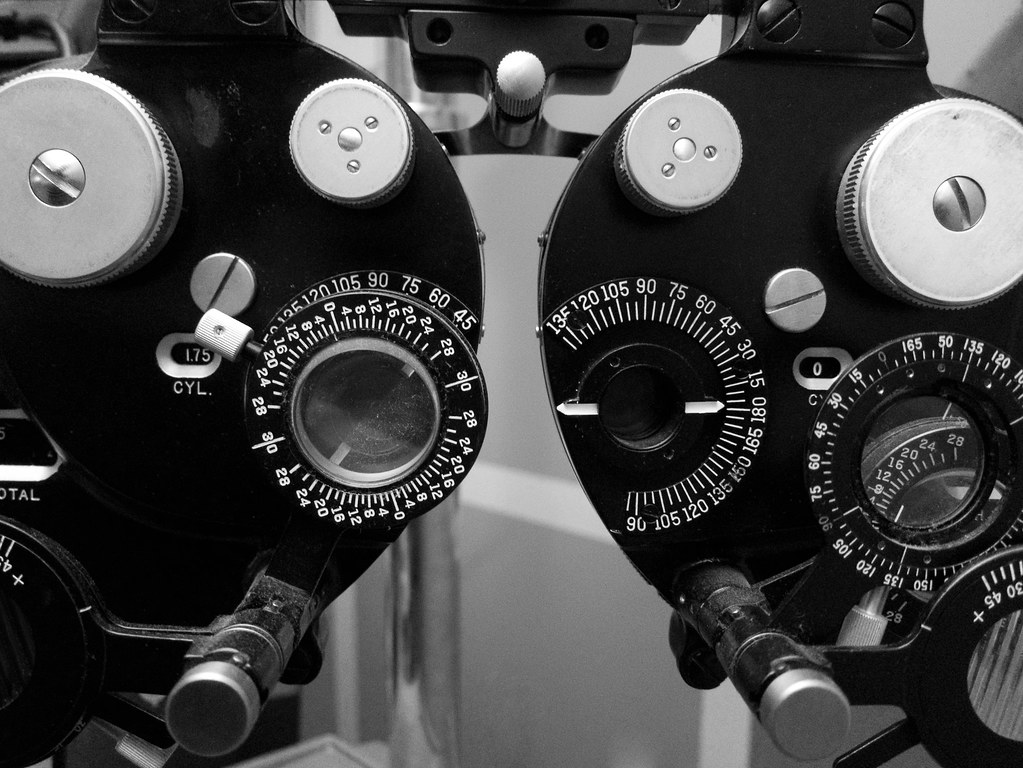Comprehensive eye exams are a thorough set of tests designed to provide a full understanding of the health of your eyes, your vision, and any potential issues your eyes may have or that are developing.
They are conducted at your optometrist’s office, at an eye clinic or at a hospital.
Here is a list of tests that are conducted in a comprehensive eye exam.
 General Eye Tests
General Eye Tests
An optometrist will conduct tests that are specifically designed to give details of your eye health. Some of the general tests given will include eye muscle movements, peripheral vision quality, depth perception, color vision, and pupil tests that detect how your pupils respond to light.
Visual Acuity
Visual Acuity is a test that is conducted on each eye individually. This test is designed to determine how each of your eyes is seeing, and how they are seeing together. The test involves you reading different lines of letters at a certain distance. The size of the letters you can read clearly, determines your vision.
A visual acuity test is conducted with each eye and it’s done at 20 feet from the text to be read. Results of the test are given in a number with a numerator and a denominator. Normal distance visual acuity is 20/20. A higher number in the denominator means that you would need to move closer in order to see a letter more clearly. For instance, 20/30 Vision means that you need to get Within 20 feet to see a letter that should be seen clearly at 30 ft. Visual Acuity test can determine whether you need eye glasses.
Keratometry/Topography
If you find that you are in need of glasses, your choice might be to get contact lenses instead. A Keratometry/Topography test is used to determine the shape of contact lenses for you. It focuses a circle of light on the cornea which is the clear outer surface of the eye, and by measuring Its Reflection, these measurements are used to ensure that contact lenses have a perfect fit.
Eye Health Evaluation
Your comprehensive eye test will include the use of digital technology, Lindsey’s, and microscopes. These Optometry tools can help determine the health of your eye tissue and the tissue surrounding the eyes. The focus of these tests is to determine the overall health of the eyes and to detect and eye diseases you might have. Your optometrist will use eye drops to dilate your pupils to get the best look inside your eyes. The pressure inside your eyes will also be measured
Eye Focusing, Eye Teaming, and Eye Movement Testing
Your two eyes work together to make clear images. To do this they must coordinate to focus at the same exact time. These tests check to see if your eyes are working together to focus and move in alignment. You optometrist will test for binocular vision and ocular mobility. If problems are discovered your doctor will do more testing to determine the source of the problem.
Refraction
To determine the lens power needed by your eyes to compensate for astigmatism, nearsightedness, or farsightedness you need to take a refraction test. Your eye doctor will use a test that places a series of lenses in front of your eyes. Using a handheld device called a retinoscope, your doctor will then measure how each lens focuses light. The test will determine which lens will give you the clearest vision. From this test, it may be determined that you need glasses or are a candidate for Lasik surgery.
Additional Testing
Once the standard tests are completed in a comprehensive eye test, they will be evaluated by your eye doctor to determine if you need additional eye tests or treatment. If so, it is likely that you will need additional eye tests. Your physician will discuss with you the results of the test and recommendations for additional testing.
These standard tests may be followed up with additional testing if your eye doctor determines that they are needed. If you have any particular eye problems, you will likely be sent for additional testing to evaluate whether there is an ongoing problem, and the extent and source of the problem.